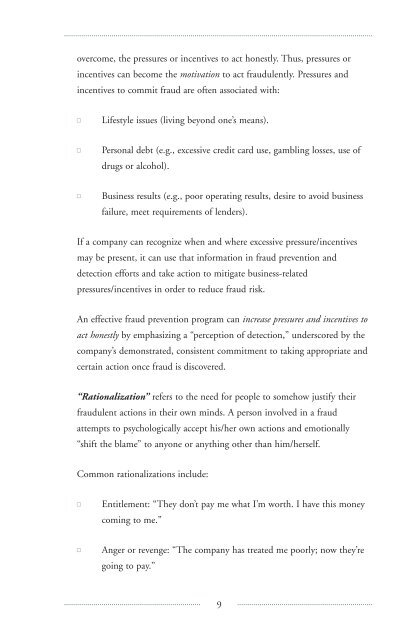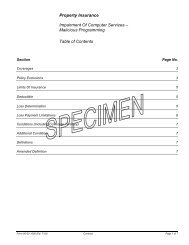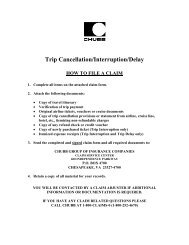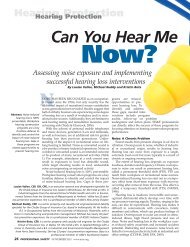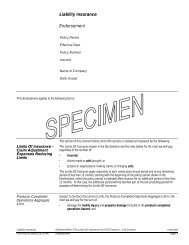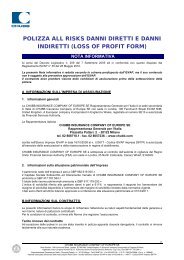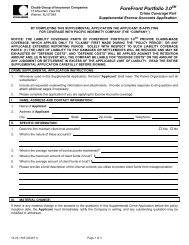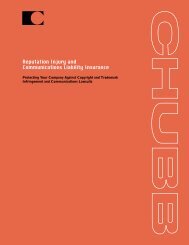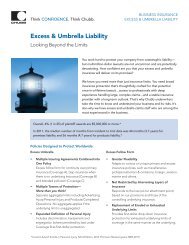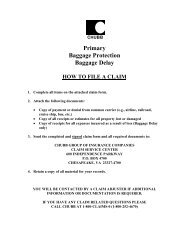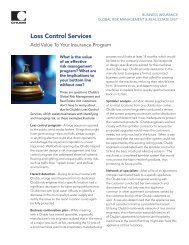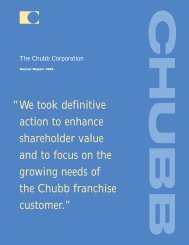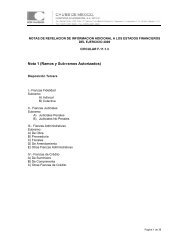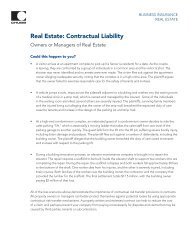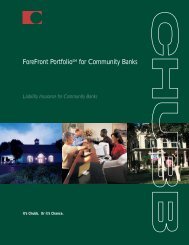Guide to Preventing Workplace Fraud - Chubb Group of Insurance ...
Guide to Preventing Workplace Fraud - Chubb Group of Insurance ...
Guide to Preventing Workplace Fraud - Chubb Group of Insurance ...
You also want an ePaper? Increase the reach of your titles
YUMPU automatically turns print PDFs into web optimized ePapers that Google loves.
overcome, the pressures or incentives <strong>to</strong> act honestly. Thus, pressures or<br />
incentives can become the motivation <strong>to</strong> act fraudulently. Pressures and<br />
incentives <strong>to</strong> commit fraud are <strong>of</strong>ten associated with:<br />
■<br />
Lifestyle issues (living beyond one’s means).<br />
■<br />
Personal debt (e.g., excessive credit card use, gambling losses, use <strong>of</strong><br />
drugs or alcohol).<br />
■<br />
Business results (e.g., poor operating results, desire <strong>to</strong> avoid business<br />
failure, meet requirements <strong>of</strong> lenders).<br />
If a company can recognize when and where excessive pressure/incentives<br />
may be present, it can use that information in fraud prevention and<br />
detection efforts and take action <strong>to</strong> mitigate business-related<br />
pressures/incentives in order <strong>to</strong> reduce fraud risk.<br />
An effective fraud prevention program can increase pressures and incentives <strong>to</strong><br />
act honestly by emphasizing a “perception <strong>of</strong> detection,” underscored by the<br />
company’s demonstrated, consistent commitment <strong>to</strong> taking appropriate and<br />
certain action once fraud is discovered.<br />
“Rationalization” refers <strong>to</strong> the need for people <strong>to</strong> somehow justify their<br />
fraudulent actions in their own minds. A person involved in a fraud<br />
attempts <strong>to</strong> psychologically accept his/her own actions and emotionally<br />
“shift the blame” <strong>to</strong> anyone or anything other than him/herself.<br />
Common rationalizations include:<br />
■<br />
Entitlement: “They don’t pay me what I’m worth. I have this money<br />
coming <strong>to</strong> me.”<br />
■<br />
Anger or revenge: “The company has treated me poorly; now they’re<br />
going <strong>to</strong> pay.”<br />
9


